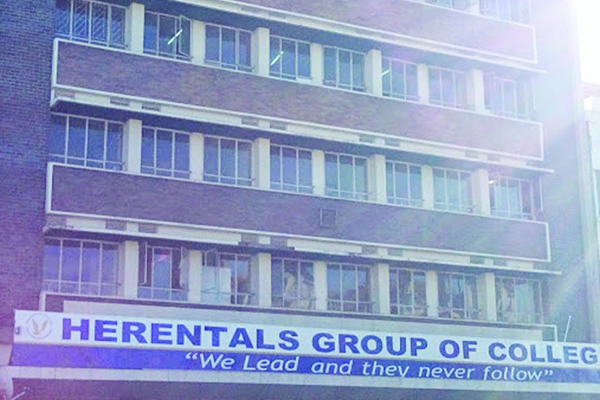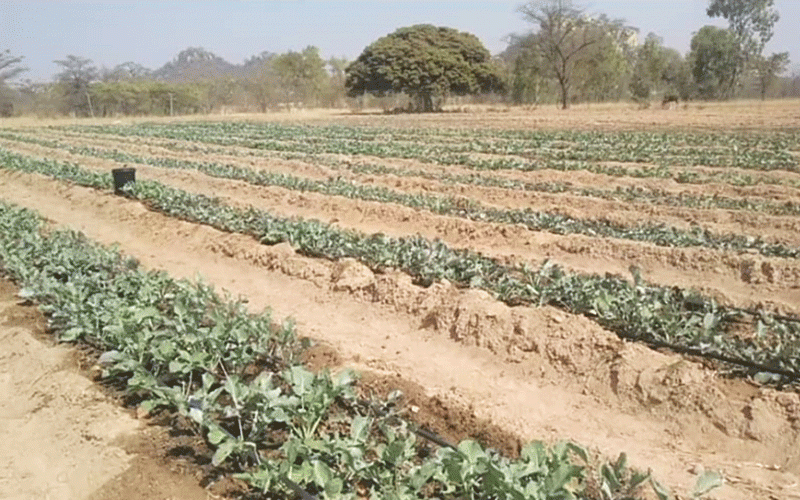
BY MTHANDAZO NYONI
Lawsuits and calls from President Emmerson Mnangagwa for companies to be environmentally conscious have failed to stop the Herentals Group of Colleges and Schools from littering Bulawayo streets.
The school — incorporated in 1999 and headquartered in Harare boasts 21 centres scattered across Zimbabwe – has been fined and taken to court several times by the Environmental Management Agency (EMA) over littering the environment, all without success.
In April 2017, Bulawayo magistrate Tinashe Tashaya ordered the college to pay a $500 fine for littering streets of Bulawayo with fliers. The college had been convicted on its own plea of guilty to two counts of littering the environment.
The court heard that on January 23, 2017, the college was issued with a ticket of $200 by EMA. The ticket was supposed to be paid within seven days, but Herentals College failed to comply.
Again on March 7, 2017, the college was issued with another ticket of $300 after committing a similar offence. EMA then took the college to court where the fines were confirmed as a court order.
In his plea on behalf of the institution, Kudakwashe Remba, the college’s management committee member said they committed the offence out of ignorance. But despite all this, the college continues to litter the streets.
Just this month alone, the school has been at it again, distributing flyers in Bulawayo’s central business district and the high-density suburbs.
- Chamisa under fire over US$120K donation
- Mavhunga puts DeMbare into Chibuku quarterfinals
- Pension funds bet on Cabora Bassa oilfields
- Councils defy govt fire tender directive
Keep Reading
“They have continued doing that. We have a serious littering problem in the country due to institutions such as Herentals. We call them to respect the people of Bulawayo and across the country,” EMA Bulawayo provincial manager, Decent Ndlovu, said, adding that they were currently preparing another lawsuit against the college.
“Who are they? What powers do they have? What kind of future leaders are they grooming? We are not happy. They are undermining us as EMA. They are actually abusing us,” he said.
In December last year, Mnangagwa declared the first Friday of each calendar month, a national environment cleaning day, as the government moves to ensure the country has sustainable environmental management and waste disposal systems.
In making his declaration, Mnangagwa said the planet was deteriorating rapidly due to climate changes which manifest as floods, heat waves, diseases, water and air pollution, land degradation and desertification among other challenges.
As such, he said these developments required the nation to take bold and decisive action with regards to the management of the environment and ensuring clean environs.
“We need to keep our villages, towns and cities clean and hygienic, both for this generation and generations to come. We must, therefore, be reoriented to practise good environmental and waste management through increased advocacy, education, training and awareness. We must do this from a place of pride, not just a necessity,” Mnangagwa said then.
But institutions such as Herentals continue defying the law and the President.
Rob Burrett, an environmentalist and private sector consultant, said the institution’s flyers, were multi-coloured and plain red with images attached.
“These have been “distributed” throughout the city by their usual means — a bus load of children encouraged — they say were sent out to deliver by hand, but in reality we have seen them simply tossing them from a moving vehicle,” Burrett said.
“This is borne out by the scatter patterns which lie on the roadsides. Yes, a few do get into post boxes and are given to pedestrians, but most are simply tossed out. This regular, uncaring littering our streets and is precisely the sort of thing that our President himself is struggling to stop.”
Burrett said Herentals were “serious polluters who show complete disregard for the environment and others in the community”.
“This is being done, one assumes, by a few selfish individuals in the Herentals management team. This is not the first time. It has happened at least three times over the last three years and I have lodged a complaint each time. What is this saying to their pupils? They have escaped the law lightly so far, but we seriously need to do something,” he added.
Bulawayo council spokesperson, Nesisa Mpofu said the local authority has issued several fines to Herentals and engaged them on the littering issue with the hope of bringing the practice to an end — but the problem persists.
“The City of Bulawayo has tried several times to engage Herentals College through dialogue and littering fines over the years. Council, also working with other stakeholders such as EMA, has also fined Herentals College. We are looking into other ways to bring this to an end,” Mpofu said.
She called upon the owners of Herentals College to come forward and discuss this “unbecoming” behaviour.
She said the practice was detrimental to council and residents efforts to ensure a clean city.
“Bulawayo would like to restore its reputation of a clean city and as all stakeholders are pulling together to achieve this vision, it is unfortunate that the college has chosen to go in an opposite direction,” she said.
Littering, according to Conserve Energy Future — an organisation dealing with environmental issues — has a number of problems for humans.
The organisation says trash is an eyesore on the environment and it disrupts the aesthetics of a region.
It takes away business and even tourism because people tend not to want to be in an area or city that is dirty, the organisation says.
“Ultimately, businesses in such regions suffer. The nature of people’s disgust with litter also means that the environment loses its economic value … littering creates a problem in logistics as someone has to clean the trash up after somebody carelessly drops it,” it says.
“Otherwise, the dirt sullies the region and serves as an eyesore. Also in dealing with the issue, municipalities often need to hire individuals to clean up the dirt. Municipalities achieve this by taxing citizens meaning that even those who do not litter still have to pay the price for those who do it.”
Keeping the cities clean also makes it easy to market brand Zimbabwe. This is because tourism thrives in a clean and disease-free environment.
Contacted for comment, Remba requested to be phoned after an hour so that he could verify the information, but after an hour, he did not answer his phone.
Ndlovu said there was need for the educational institution to change its attitude towards waste management.
“They will need to change their attitude and do proper thing. Now when we do cleaning we will be cleaning their waste that they would have put. It’s not fair and that should stop forthwith,” Ndlovu said.











